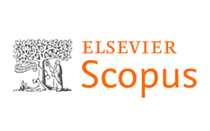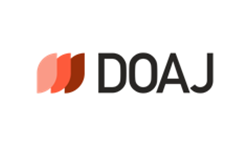ОЦІНКА ВЗАЄМОЗВ’ЯЗКУ МІЖ ВИЩОЮ ОСВІТОЮ ТА БІЗНЕСОМ: ПРИКЛАД БОЛГАРІЇ
Ключові слова:
Освіта, персонал з вищою освітою, людський капітал, бізнес, розвиток.Анотація
блеми, які виявляє болгарський бізнес щодо персоналу з вищою освітою. На практиці бізнес вважає, що науково-освітні заклади мають надавати освітню послугу, яка відповідає їх вимогам до рівня компетенцій. Досліджено галузі та підгалузі, де потреба в персоналі є найбільш гострою. Модель більш загальної освіти – невід’ємна частина нових глобальних реалій. Значною мірою це означає, що університети пропонують освітні послуги більш загального характеру. У цій ситуації важко подолати розрив між знаннями та вміннями випускників та вимогами бізнесу. Цей факт свідчить про об’єктивний розрив між підготовкою студентів до ринку праці та очікуваннями бізнесу. Автори також досліджують надання освітніх послуг у реальному секторі, зокрема думку працедавців щодо якості молодих спеціалістів поза освітнім середовищем. Таким чином, необхідно визначити зв’язки між вищою освітою та різними сферами ринку праці, наприклад підприємництвом, сферою послуг та первинним сектором. Важливим аспектом є аналіз тенденцій та умов відбору спеціалістів з вищою освітою. На думку авторів, потрібне гнучке та адаптивне економічне середовище, орієнтоване на глобальні та регіональні особливості територіального розвитку та наявний людський капітал.
Класифікація за JEL: I23, I25, M5, P46, R23.
Посилання
Basken, P. (2017, Jun 7). Trump will push apprenticeships, using accreditation and student aid. The Chronicle of Higher Education.
Cameron, C., Perrin, L., Grant, F., Fraser, W., & Taylor, K. (1996). Creating peaceful learning environments. XXVI International Congress of Psychology.
Casner-Lotto, J., & Barrington, L. (2006). Are they really ready to work? Employers’ perspectives on the basic knowledge and applied skills of new entrants to the 21st century US workforce. Partnership for 21st Century Skills.
Civera, A., Donina, D., Meoli, M., & Vismara, S. (2020). Fostering the creation of academic spinoffs: does the international mobility of the academic leadermatter?. International Entrepreneurship and Management Journal, 16(2), 439-465. https://doi.org/10.1007/s11365-019-00559-8
Council of Ministers. (n.d.). National Strategy of Scientific Research to 2020.https://www.strategy.bg/FileHandler.ashx?fileId=1437
Council of the European Union. (2011). Council conclusions on the modernisation of higher education (November 2011). Official Journal, 37C372. https://www.consilium.europa.eu/uedocs/cms_data/docs/pressdata/en/educ/126375.pdf
Guerrero, M., Cunningham, J. A., & Urbano, D. (2015). Economic impact of entrepreneurial universities’ activities: An exploratory study of the United Kingdom. Research Policy, 44(3), 748-764.
Hahn, C. J., & Gangeness, J. E. (2019). Business, leadership and education: A case for more business engagement in higher education. American Journal of Business Education, 12(1), 19-31. https://doi.org/10.19030/ajbe.v12i1.10251
Hassan, N. A. (2020). University business incubators as a tool for accelerating entrepreneurship: theoretical perspective. Review of Economics and Political Science. https://doi.org/10.1108/REPS-10-2019-0142
Hristov, Hr., & Hristova, M. (2012). Factors for the quality of higher education in a competitive environment [in Bulgarian]. In Ninth International Scientific Conference «Teaching, Learning and Quality in Higher Education – 2012». International Higher School of Business.
Hyslop-Margison, E. J. (2000). The market economy discourse on education: Interpretation, impact, and resistance. Alberta Journal of Educational Research, 46(3), 203-213.
Iliev, Ts. (2009). Higher education in Bulgaria and the economic determinants of the twentieth century [in Bulgarian]. Magazine «Dialogue», 2, 85-94.
Kirova, A. (2012) Problems of the process of realization of human capital in higher education and science [in Bulgarian]. In Ethics in Bulgarian science (pp. 256-257). UNWE.
KPMG. (2020). The future of higher education in a disruptive world. 137134-G. https://assets.kpmg/content/dam/kpmg/xx/pdf/2020/10/future-of-highereducation.pdf
Kromydas, T. (2017). Rethinking higher education and its relationship with social inequalities: Past knowledge, present state and future potential. Palgrave Communications Journal, 3, 1. https://doi.org/10.1057/s41599-017-0001-8
Lee, S. J., & Müller, L. (2019). Institutional stratification and its effects on wages of higher education graduates in Germany and South Korea. European Journal of Higher Education, 9(4), 433-451. https://doi.org/10.1080/21568235.2019.1666290
Lehmann, E., Meoli, M., Paleari, S., & Stockinger S. (2020). The role of higher education for the development of entrepreneurial ecosystems. European Journal of Higher Education, 10(1), 1-9. https://doi.org/10.1080/21568235.2020.1718924.
Letizia, A. (2013). Dialectical constellations of progress: New visions of public higher education for the twenty-first century. Journal of Critical Thought and Praxis, 2(1). http://dx.doi.org/10.31274/jctp-180810-10
Mountford-Zimdars, A., & Sabbagh, D. (2013). Fair access to higher education: A comparative perspective. Comparative Education Review, 57(3), 359-368.
Nabi, G., Walmsley, A., Liñán, F., Akhtar, I., & Neame, C. (2018). Does entrepreneurship education in the first year of higher education develop entrepreneurial intentions? The role of learning and inspiration. Studies in Higher Education, 43(3), 452-467. https://doi.org/10.1080/03075079.2016.1177716
National Statistical Institute. (n.d). Education in the Republic of Bulgaria. https://nsi.bg/en
National Statistical Institute. (2021). Graduates in education and qualification degree and gender [in Bulgarian].
Peycheva, M. (2005). Model for staff turnover audit [in Bulgarian]. Economic Alternatives, 6.
Schenkenhofer, J., & Wilhelm, D. (2020). Fuelling Germany’s Mittelstand with complementary human capital: the case of the Cooperative State University Baden-Württemberg. European Journal of Higher Education, 10(1),72-92. https://doi.org/10.1080/21568235.2019.1694421
Stăiculescu, C., Richiţeanu-Năstase, E. R., & Dobrea, R. C. (2015). The university and the business environment-Partnership for education. ProcediaSocial and Behavioral Sciences, 180, 211-218. https://doi.org/10.1016/j.sbspro.2015.02.107
Todorova, D., & Gergova, N. (2017). Education market challenges in Bulgaria. International Conference on Resolving Crisis Situations in the Zilina Specific Environment.
Todorova, D., Kolev, P., & Gergova, N. (2018). Internationalization of higher education – development through university cooperation in training the staff for the transport system [in Bulgarian]. Mehanika Transport Komunikatsii, 3(1), 1-7.
Tracy, D. L., Knight, J. E., & Rieman, M. W. (2014). Business student versus employer course design preferences: Can both educational stakeholders be satisfied?. Academy of Educational Leadership Journal, 18(1), 15-36.
Vutsova, Al. Arabajieva M. (2016). Quality of higher education in Bulgaria in the context of the European Higher Education Area – Problems and possible solutions [in Bulgarian]. Strategies for Policy in Education and Science, 4, 351-361.
Weeks, W. A., Rutherford, B., Boles, J., & Loe, T. (2014). Factors that influence the job market decision: The role of faculty as a knowledge broker. Journal of Marketing Education, 36(2), 105-119. https://doi.org/10.1177%2F0273475314537496
Стаття отримана: 2 лютого, 2022.
Стаття рецензована: 13 березня, 2022.
Стаття прийнята: 5 квітня, 2022.
##submission.downloads##
Опубліковано
Як цитувати
Номер
Розділ
Ліцензія
Автори, які публікуються у цьому журналі, погоджуються з наступними умовами:
- Автори залишають за собою право на авторство своєї роботи та передають журналу право першої публікації цієї роботи на умовах ліцензії Creative Commons Attribution License, котра дозволяє іншим особам вільно розповсюджувати опубліковану роботу з обов'язковим посиланням на авторів оригінальної роботи та першу публікацію роботи у цьому журналі.
- Автори мають право укладати самостійні додаткові угоди щодо неексклюзивного розповсюдження роботи у тому вигляді, в якому вона була опублікована цим журналом (наприклад, розміщувати роботу в електронному сховищі установи або публікувати у складі монографії), за умови збереження посилання на першу публікацію роботи у цьому журналі.
- Політика журналу дозволяє і заохочує розміщення авторами в мережі Інтернет (наприклад, у сховищах установ або на особистих веб-сайтах) рукопису роботи, як до подання цього рукопису до редакції, так і під час його редакційного опрацювання, оскільки це сприяє виникненню продуктивної наукової дискусії та позитивно позначається на оперативності та динаміці цитування опублікованої роботи (див. The Effect of Open Access).








